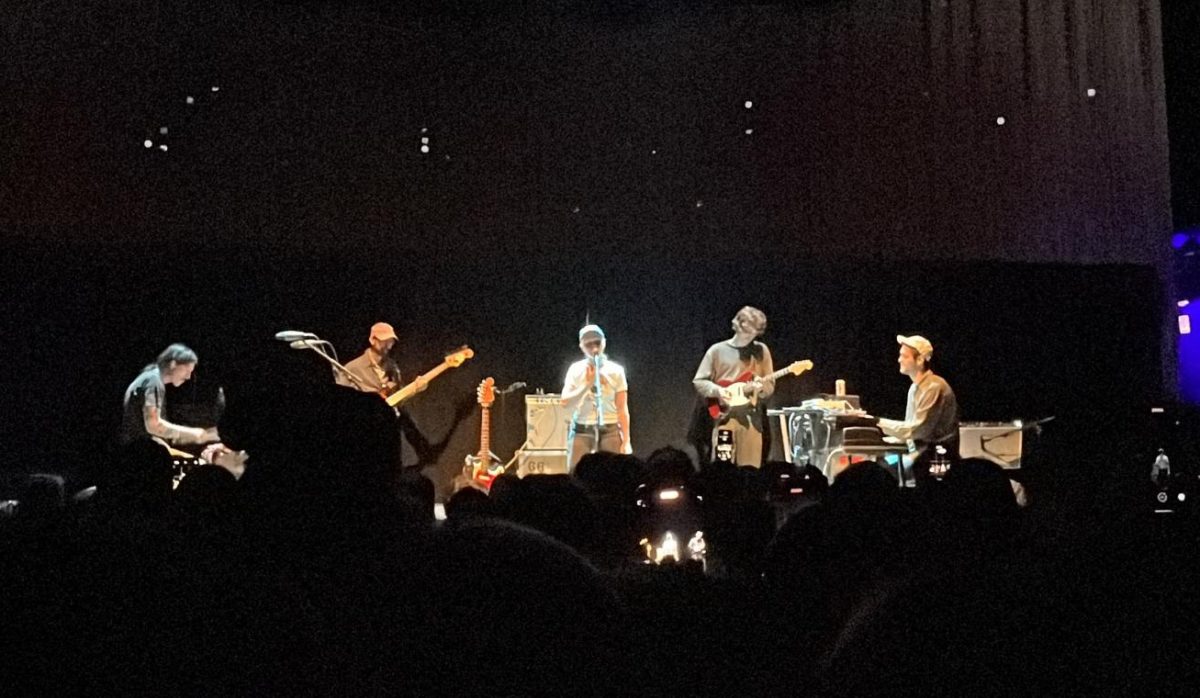LCD Soundsystem’s most recent album, American Dream, is a half-baked collection of languid meditations with stale B-side “dance” rhythms under the meandering diatribes of an aging James Murphy. Despite what many fans might like to think, this album did not come out of a vacuum. What could have been a solid LCD album in 2014 is exactly that—but a few years too late. Instead of being musically or lyrically adventurous, the only gamble LCD has made with this album is their artistic integrity. Murphy and friends have sold their artistry for their first No. 1 album.
With American Dream, Murphy grasps at whatever thin straws of profundity are left over from his prime days of music writing. But instead of coming across as shrewdly self-aware, the writing is clunky and self-accepting of its own laziness. The most telling example of this is in the song “Tonite,” which laboriously laments the decay of modern pop music. In a ridiculous self-parody, Murphy casts shallow criticisms on the repetitive and unimaginative nature of new artists who constantly emphasize the importance of living life in the present. Meanwhile, what feels like a 10-second drum and synth loop found in the audio samples of GarageBand pounds on in the background. It is an atavistic critique of “YOLO” culture that may have been impactful a decade ago. What was intended to be self-reference quickly becomes self-reverence as Murphy sings, “Oh I'm a reminder/ The hobbled veteran of the disk shop inquisition/ Set to parry the cocksure of mem-stick filth/ With my own late era middle-aged ramblings.” He portrays himself as the noble vanguard to a bygone era of artistic purity. Any humility that surfaces in this album is a facade for what Murphy really thinks is unquestionably sage wisdom. I hate to be the one to tell him it comes across as a morose geriatric diary.
American Dream’s greatest strength lies in its contradictory emotional threads, eliminating any apprehension toward incompatible emotional complexity. In “Emotional Haircut,” themes of resounding self-affirmation, love, loss, and admiration weave around each other in a fulfilling, familiar way. The song also offers a recurring homage to lost heroes in the musical development of LCD Soundsystem (“You’ve got numbers on your phone of the dead that you can’t delete”). Murphy has mentioned lost figures in his personal life (such as his therapist) in previous albums, but the influence of icons like Lou Reed and David Bowie is more prominent than ever before. Bowie is especially present in “Black Screen” as Murphy embodies the same obsessive fans that he sees worship LCD Soundsystem.
Despite these glimpses of emotional depth, Murphy nonetheless plays fast and loose with the respect of these very fans on this reunion album. Many of the tracks on American Dream feel like old, unrefined ideas that could have been released without a reunion tour or any grand pontificating from Murphy. The more I look at it, the more this whole project feels like a cash grab—which isn’t worth people’s time or attention unless the album is great. This one is middling at best.






